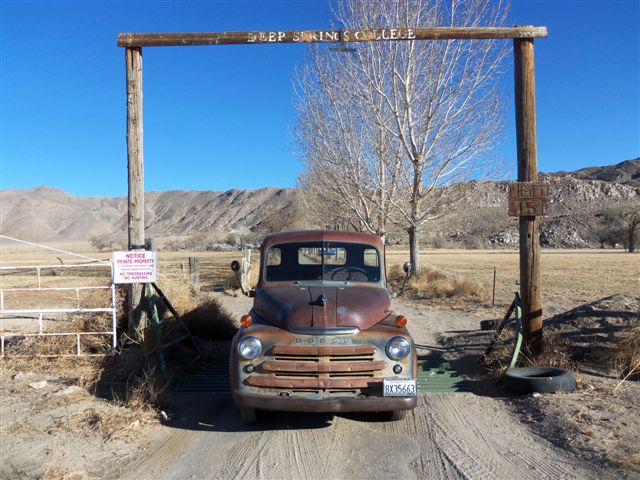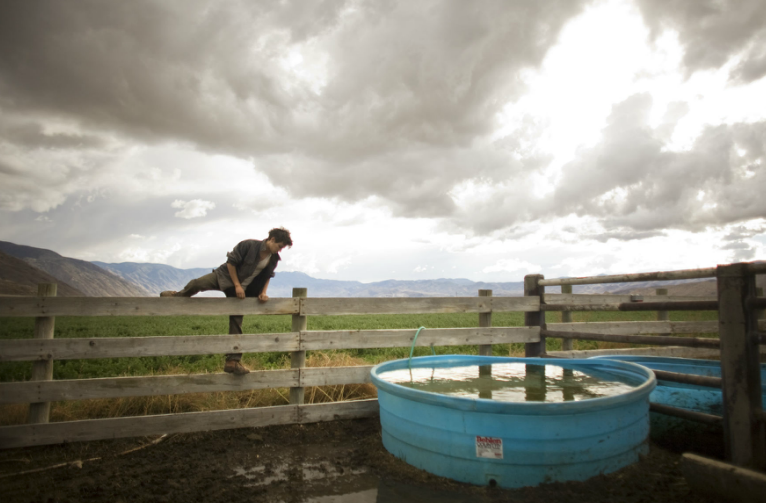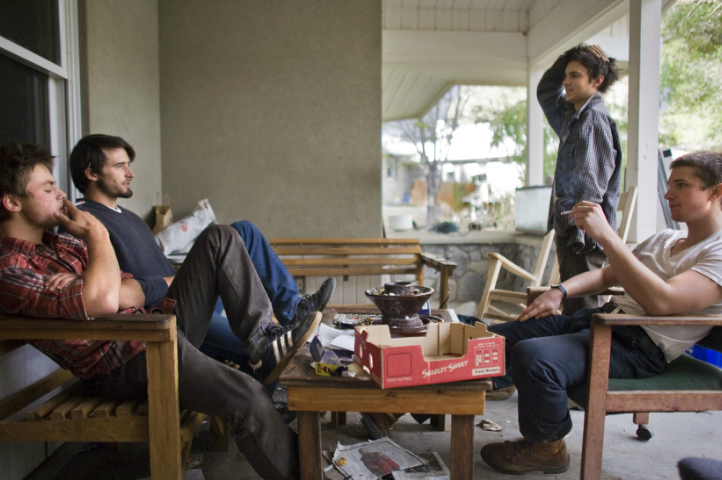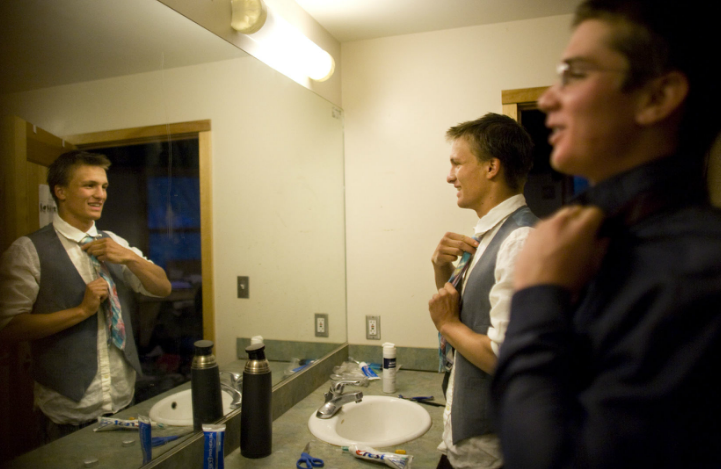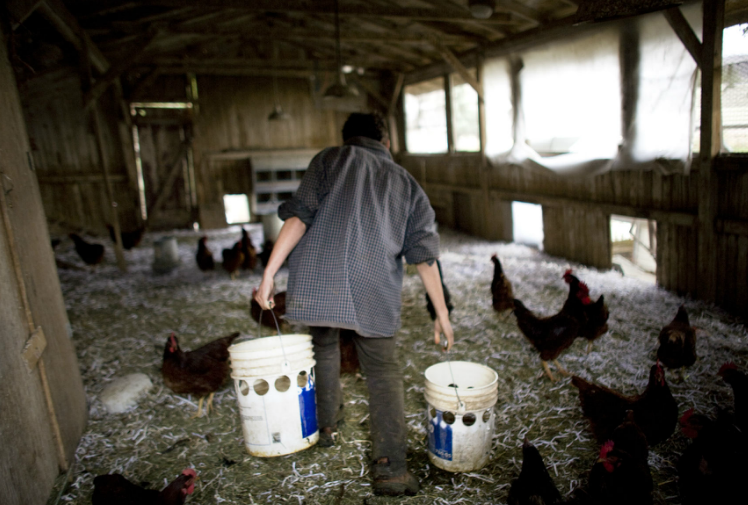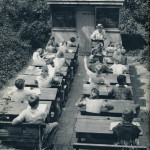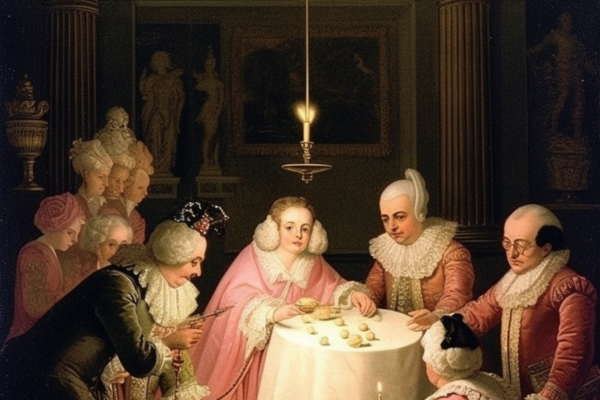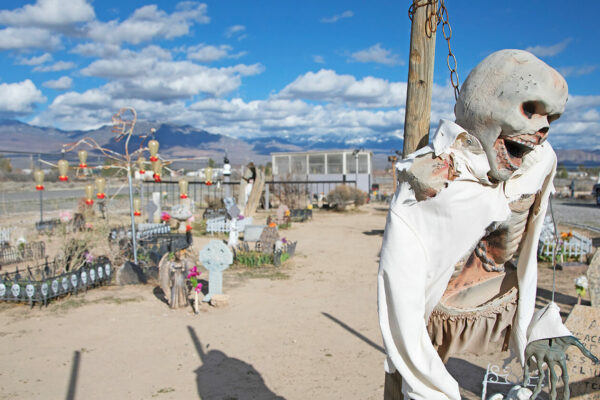What if I told you there was an elite college as exclusive as Harvard and as remote as the North Pole? That it consistently tops Harvard’s yield rate and evades suspicions of being a cult, that it requires its students to engage in 20 hours of manual labor per week and doesn’t let them leave without express permission?
Well, this is the true story of Deep Springs College, where there are 26 students total at any given time, all of them male. Despite its constant admissions competition and solid interest, the college remains as committed as ever to its exclusivity and small size.
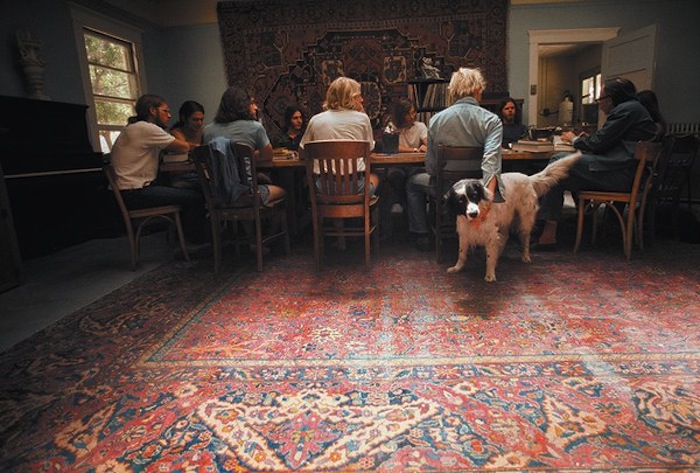
Photo: Jodi Cobb/National Geographic
A Day in the Life of a Deep Springs Student
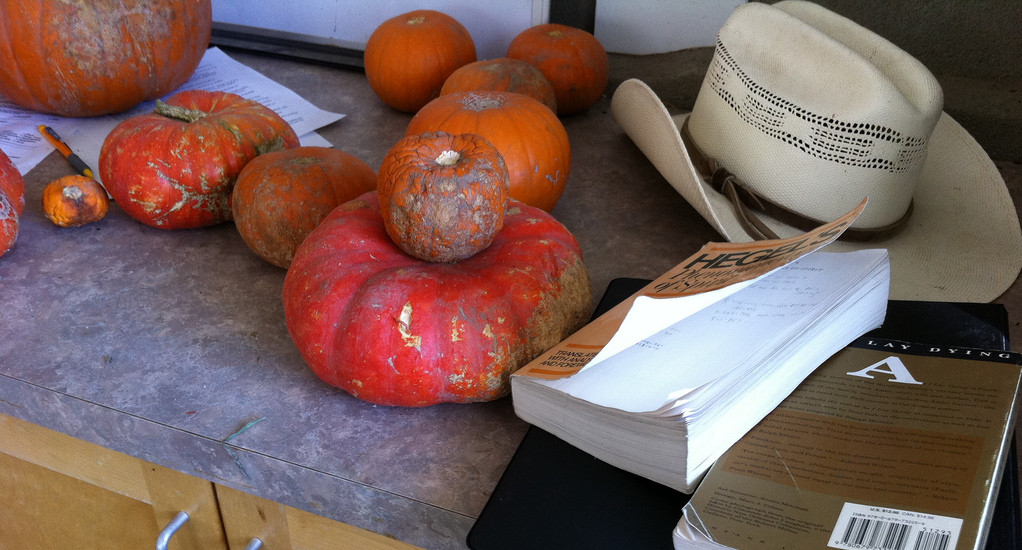
Founded in 1917, Deep Springs College is located in the remote High desert of California, settled on an alfalfa farm and cattle ranch just northwest of Death Valley. The students run the farm themselves, which stays true to the school’s history since it was built upon the tenets of self-governance, manual labor, and rigorous academics and upholds a deep commitment to serving “humanity.”
Images (c) Betsy Devine & Brian L Frank
The entire school is set up as an interconnected web, meant to bolster each student’s connection with his fellow community members as well as the desert landscape itself. The few buildings on campus are arranged in a circle and each has an outward-facing porch, looking out into the vast expanse of land.
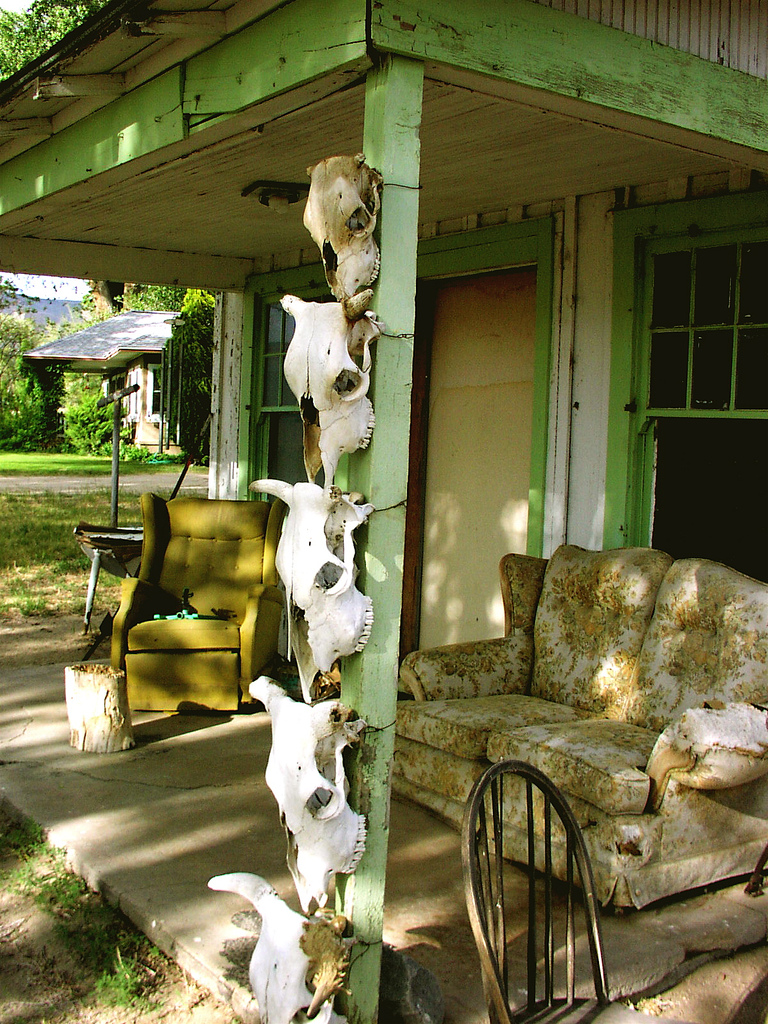
(c) Grace Growing
If you feel that this might be for the college for you, and think you have what it takes to get in—celebrate now, because “every student accepted to Deep Springs receives a scholarship covering tuition, room, and board valued at over $50,000.”
The only remaining fees left for the student to pay normally amount to “less than $2,800 per year for travel, books, and incidentals.”
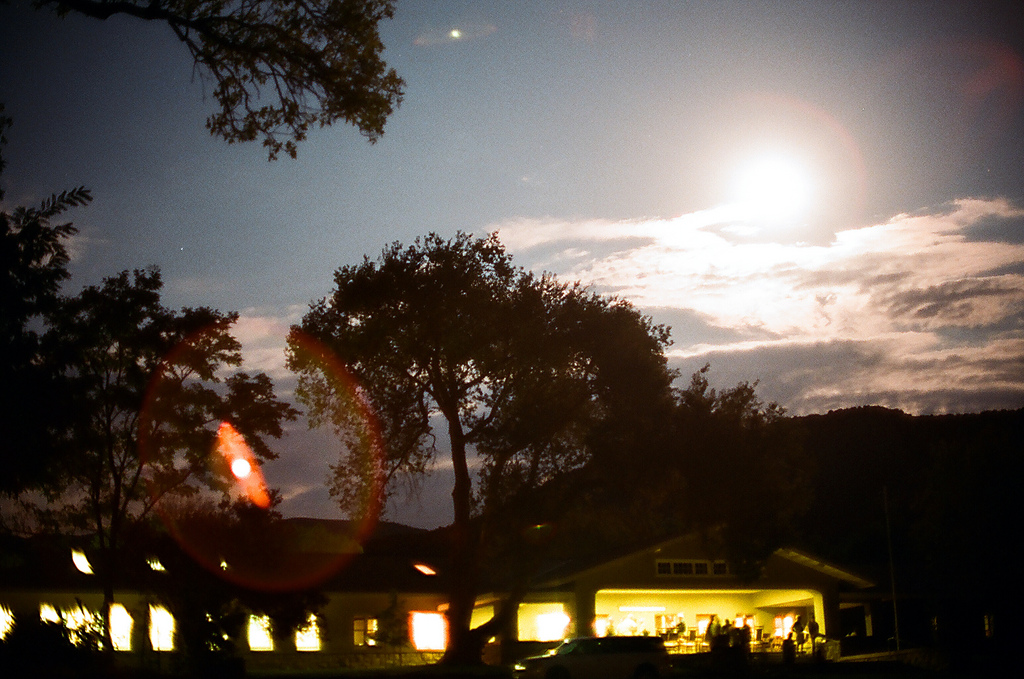
(c) Jacob Dickinson
The boys often spend their rare moments of free time smoking and in deep discussion with one another out on the porches. Alcohol and drugs are strictly forbidden, but tobacco and cigarettes are allowed. However, smoking is not allowed anywhere near the hale bales, since should a fire break out in the dry underbrush of the California desert, Deep Springs is “45 minutes from the nearest emergency services.” Perhaps not the best place for weekend bonfires.
(c) Brian L Frank
In fact, there is an elected position within the student body specifically for “Dragonslayer,” a student who is chiefly in charge of fire prevention and safety. Among the other student-elected positions are Archivist, Labor Commissioner, and Gandolf and Frodo, who wield power over the radio-telephone and internet.
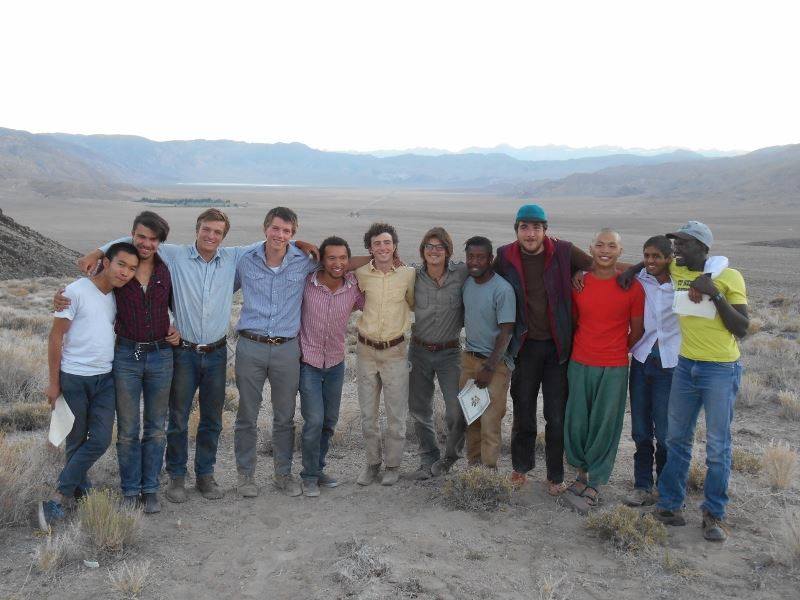
Students also spend their requisite minimum of 20 hours per week manual labor in positions ranging from butcher to gardener to librarian. The most coveted position of them all is “Student Cowboy”, whom the ranch managers carefully select. As well as being a great honor, being Cowboy is also an enormous commitment.
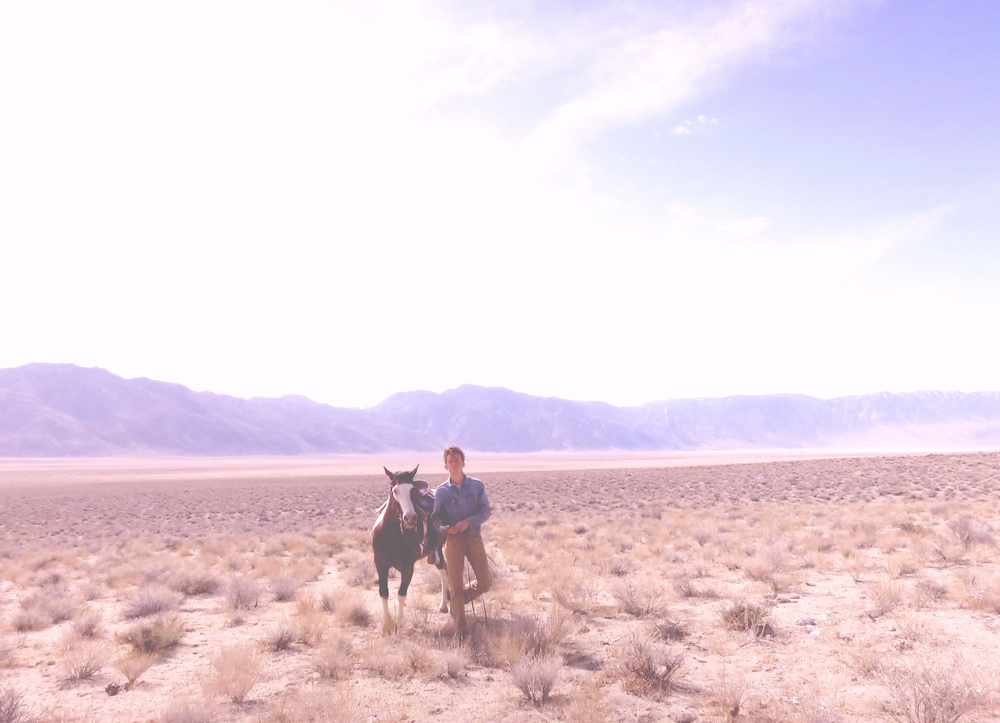
“[The Student Cowboy] must commit to work through the rest of the year and the summer after they graduate. The Mountain Cowboy must also return the following summer as senior cowboy to stay with the herd and to train the junior cowboy…The cowboys have the evening calving watch, from about 4:30 in the afternoon until 6:00 in the morning. They check for signs of labor every three hours … In April the cowboys supervise as the entire Student Body pitches in for a week or so to gather, brand, inoculate and castrate all the calves..”
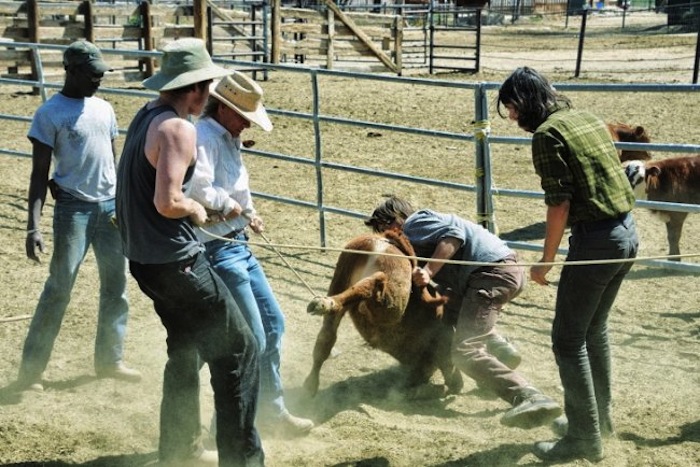
Aside from being over 45 minutes away from the closest emergency facilities, Deep Springs’ website also reveals that “the nearest town with a selection of services and stores is … an hour’s drive away.” The internet is mostly “slow;” on a good day it’s “tolerable.”
The closest thing to civilization near the college is a brothel named the Cottontail Ranch.
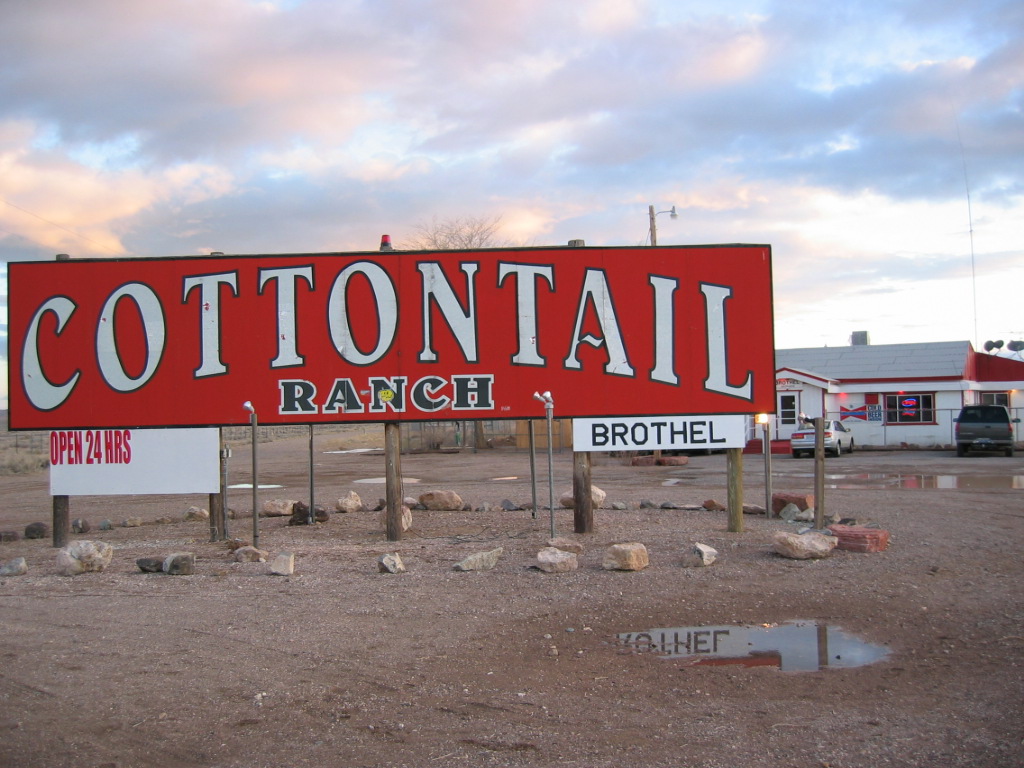
A self-imposed prohibition and self-inflicted isolation?
The decision to prohibit alcohol and drugs is continually renewed and supported by the student body itself. They basically run the school themselves through a method of “self-governance.” Not only is hard partying prohibited but, “the Student Body prohibits leaving the valley during academic terms except for ranch or college business, religious services, or emergencies.” That rule as well as the lack of alcohol and drugs “are intended to preserve the intensity and integrity of a student’s experience at Deep Springs.”
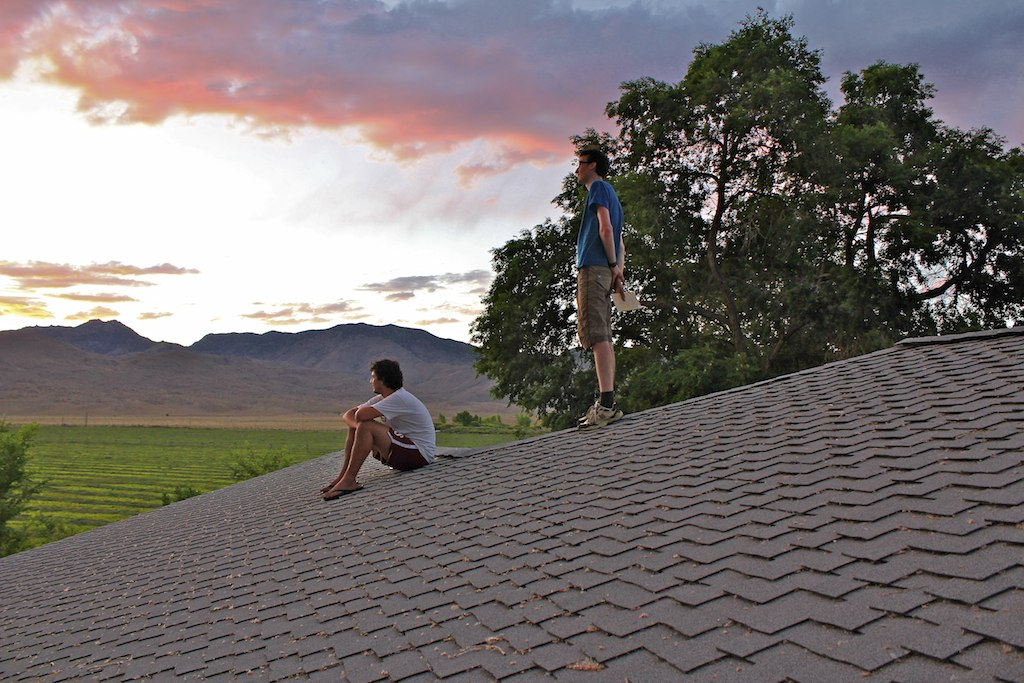
(c) Kevin Morell
Both the isolation policy and the drug-and-alcohol policy also uphold the intentions of Lucien Lucius Nunn, the founder of Deep Springs, who created the school based upon the notion that “The desert has a deep personality; it has a voice. Great leaders in all ages have sought the desert and heard its voice. You can hear it if you listen, but you cannot hear it while in the midst of uproar and strife for material things…”
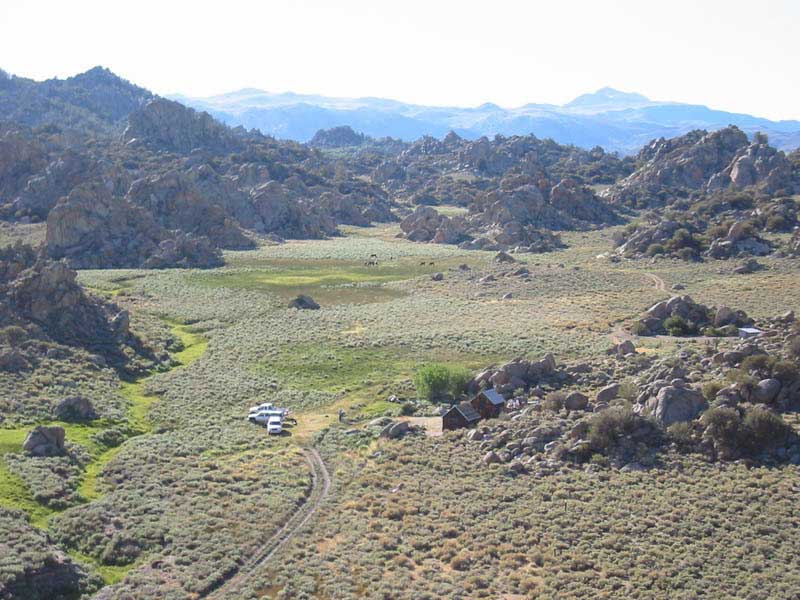
Access to Deep Springs College is also restricted for visitors. The students evaluate every visitor query before responding with a final answer. The process is not quick. It took them six months to finally grant a Guardian reporter permission to visit. That was enough of a deterrent for me to forgo any attempt in contacting them, which may well be the entire purpose of their prohibitive approval system–to keep outsiders at bay.
Self-governance is woven into the fabric of Deep Springs. “Faculty hiring and student admissions are technically powers of the trustees, who have in turn assigned them to the president. He, in turn, has entrusted these powers to the Student Body.”
So aside from running the farm, the students essentially determine the composition of the faculty and choose which incoming students are granted admission.
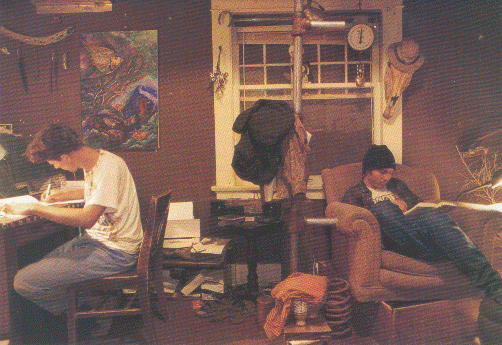
It actually makes sense, especially in this case– after all, if you were living with only 25 other young adults with virtually no one else around you for two years, you would probably want to handpick those 25 people too.
An existential Burning Man Festival? A deeply intellectual cowboy cult?
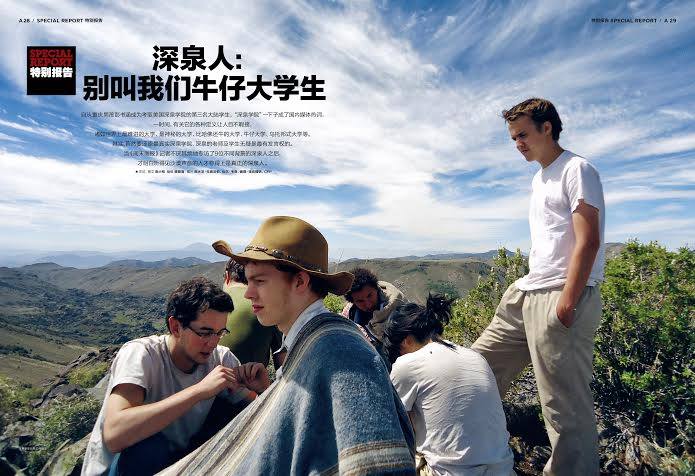
The college attracts outsider curiosity from all the world, featured here in China’s Modern Weekly magazine.
Deep Springs college is hard to sum up. A common story about the school is that it is merely an elaborate front of a cult. In fact, even the inhabitants of the nearest town, Bishop, CA hold their fair share of suspicions. “One rumour suggests it’s a rehabilitation centre for homicidal adolescents, others suggest ‘Brokeback Mountain’, or a cult.”–The Guardian
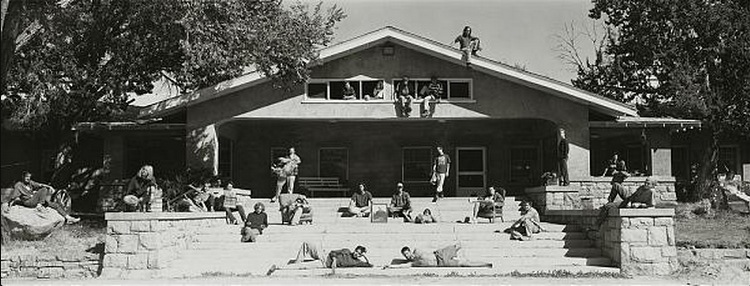
Although the college has been likened often enough to Lord of the Flies, the astounding order and self-control exhibited by the boys running the school prove that this is something else entirely.
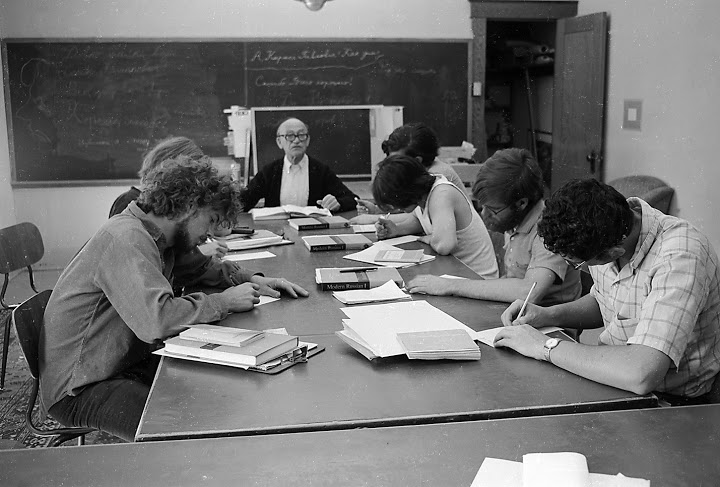
The course catalogue reflects both the view that every young man should immerse himself in the desert before rejoining society as well as the serious intellectual vibe of the school. The President of the College, David Neidorf, teaches a class, ironically, on feminism, despite the student body being all male.
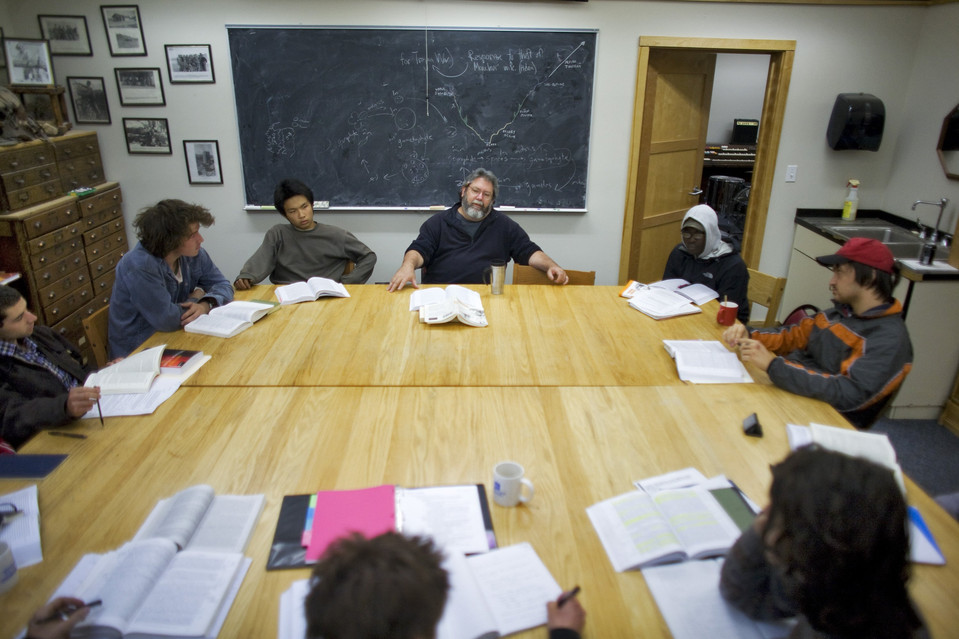
Other courses at Deep Springs include; God and Evil: Theodicies (Philosophy of Religion, Religious Studies), Sacred Texts of Wandering and Journeying: Zhuangzi & Dante (Religion Studies, Literature), and Catching Spies (Literature, Film Theory).
What do these cowboys do for fun…
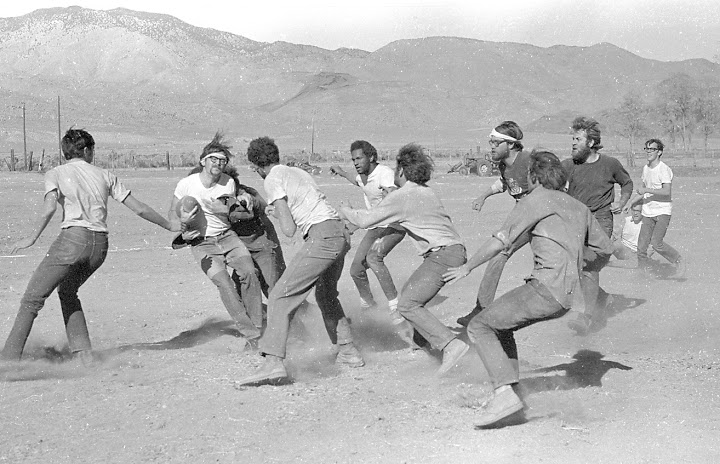
The college mixes together elements of the ascetic, the practical and the plain-ol-crazy. To let off steam, the boys go wild dancing at “boojies,” the closest thing to a rave in a desert that a handful of 20-something year old guys can pull off. Each “boojie” has a theme; Taylor Swift is a recurring favorite.
(c) Brian L Frank
Besides “boojies,” the boys have equally eccentric ways of entertaining themselves, although according to the school’s website, “Admittedly, there’s not an abundance of downtime at Deep Springs.”
Do not come here, though , if you are looking for some glorified, academic version of Canyon Ranch. Although the food is supposedly exceptional and basically all comes from the school’s organic, student-run garden, and although the image of living in the California desert on a sparse ranch may seem irresistibly romantic, the lifestyle comes at a price.
(c) Brian L Frank
The school shows no qualms in advertising the reality of the intense commitment. After all, as they admit freely on their website, each student really does “labor at least twenty hours a week.”
No Girls Allowed
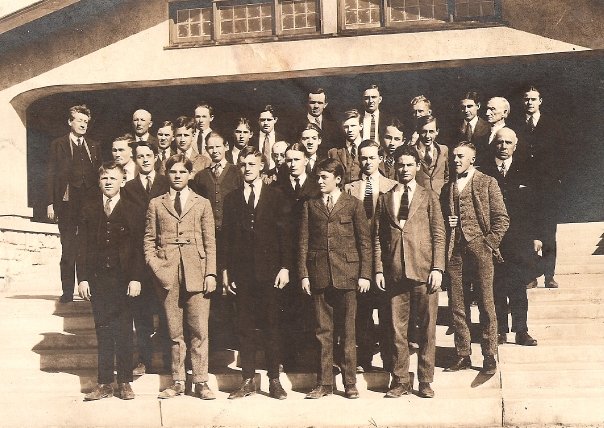
As of now, the school remains all-male, as it was at its founding. It briefly planned to go coed in 2013 after a contentious debate, but was legally stopped by a line in its charitable trust (which is another unique aspect of the school, since the vast majority of colleges are non-for-profit organisations), requiring that the school remain solely open to male students. After the issue was taken to court, “The judge ruled that under the terms of a trust that supports the college, the trustees lack the authority to admit women.”
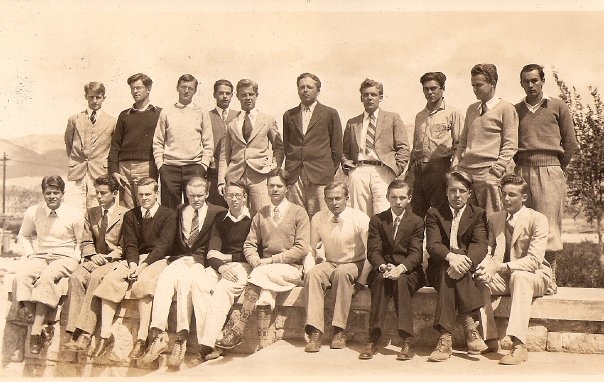
Although many a potential-cowgirl’s heart was broken, young women seeking admission at Deep Springs should not give up hope. More recently, “Judge Dean T. Stout ruled that the L.L. Nunn Trust … could change its mission from promoting ‘the education of promising young men’ to ‘the education of promising young people.'” The college still plans to eventually admit women, but no one can say when this plan will come to fruition.
Deep Springs vs. Harvard
Six to 15 percent accepted of applicants are accepted to Deep Springs College each year. More than 90% of applicants who receive an offer of admission enroll, giving Deep Springs the highest yield rate in the country– much higher even than Harvard, who, according to US World News and Report, boasted the highest yield rate in 2015 at 81% (US World News and Report doesn’t include Deep Springs in its listings since it is not a traditional four year college).
Despite its non-conventional structure, Deep Springs College is probably the only college left in the entire world that still acts as a virtual feeder to the Ivy League Colleges. Deep Springs is only a two year college, so after their time is up, most students must get ready to settle for an equally prestigious, if more traditional and mainstream, college experience. “Roughly 80 percent go on as juniors to colleges such as Harvard, Yale, Brown, Columbia and Oxford, while the remainder typically embark on a year of service first. ” –Vanity Fair
Many private high schools and community colleges all across the world would do almost anything to achieve those numbers.
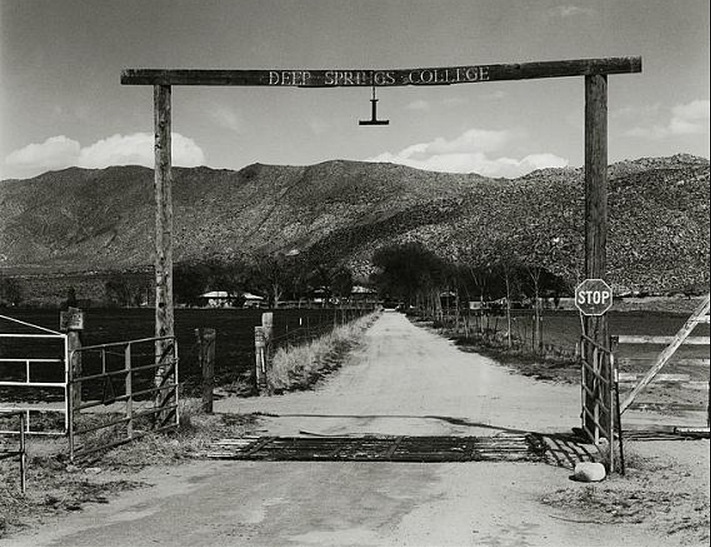
While it is easy to see how this experimental academic set up could have run amok, Deep Springs seems solidly successful and intriguing in all the research I could find. Then again, maybe they have simply perfected the art of deception. But when you’re that far out in the desert, no one ever really knows…
Sources/ Images Via: usnews.com / sf260w.com / universitasph.com / insidehighered.com/ The Wall Street Journal / The Guardian / coldsplinters.com / studentsreview.com
By Wallace Kalkin


